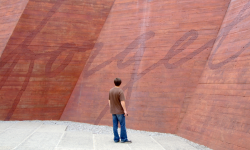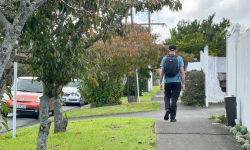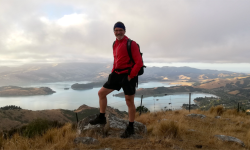
South West Baptist Church (SWBC) has been on a journey over the last little while, resulting in a church structure that is a bit different to the one many of us are used to. We caught up with Senior Pastor Alan Jamieson to find out more.
Alan, can you tell us a bit about the journey that SWBC has been on?
AJ: The story leading up to where SWBC is today goes back over fifty years. Murray and Marj Robertson were in leadership at SWBC for forty years and a strong theme of that time was redemption. The story of Jesus and his plan for the world is redemptive. Through the work of the cross and the power of the Spirit, relationships are redeemed. The gospel is about our relationship with God being redeemed; we see that it is also about redemption in the relationship we have with ourselves, with each other in the church, and with the world (both with people and creation).
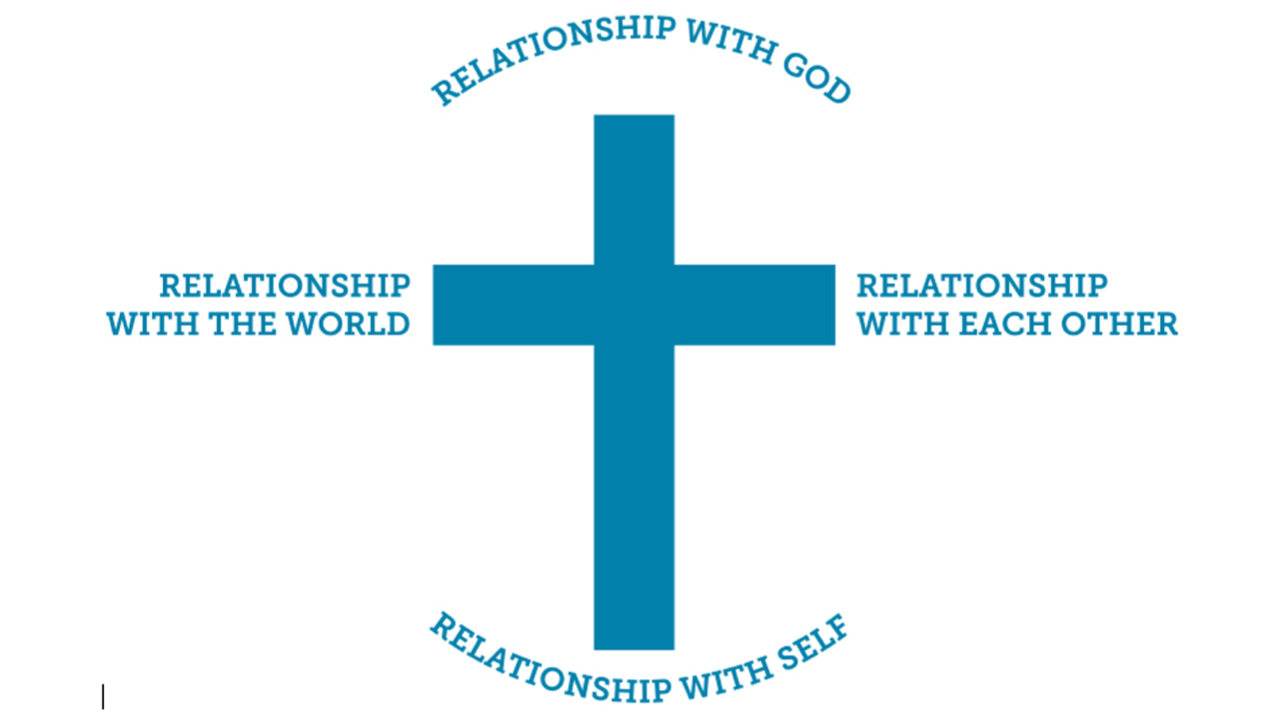
This theme is captured in part of the mission statement of the church: “We aspire to be a redemptive community...” The expression of this understanding over the last decade has been the beginnings of redemptive communities grounded in neighbourhoods. These are groupings of people from the church who are seeking to live a redemptive life—a Kingdom life—on the streets and in the suburbs that they find themselves, with the people that they find themselves among.
What’s the reason for the focus on neighbourhood?
AJ: At base level, there’s a sense that God is drawing us to live locally, and with the Spirit’s help we are simply trying follow his lead. When we stand back and look at this, we see that it fits naturally with our own story, and in Scripture we see God’s concern for place and for people, and that Jesus came to dwell in a place. We truly believe that the heart of church (and life) is relationship—like the very essence of God. Presence is the centre of relationship, and this has the potential to bring great healing. Our mobile, individualistic world has almost lost its sense of belonging to a place and people. There looks to be an opportunity to re-find ourselves in physical proximity to one another and in relationship to a place.
For us, presence-based relationships are currently at the centre of what we want to do in terms of seeking the holistic nature of the Kingdom. This has been a journey for us; we have explored other dimensions too. We recognise, for example, that our vocational lives are also vital parts of the Kingdom. But in this article, we’re focusing on life in neighbourhood.
How did this focus come to be?
AJ: I don’t think we planned it! From out of our people following our ongoing dream locally and globally, communities on the ground formed. Key leaders added life to the dreams and ideas, and more people started to move into the areas. Slowly it started to bubble. These groupings were communities together; they combined households, or meals together, or care for people in need.
We as a church were asking, “Where is the Spirit at work? Where is there new life? Where is God raising up a new way of living out our redemptive life?” And these communities began to stand out. So we asked, “What can we learn from them? How can we learn to do this in other areas as well?” Then over time, different people have joined different areas and it’s developing.
Can you give us an example?
AJ: One of the neighbourhoods has about 2500 homes, surrounded by busy roads. Essentially, these roads create the boundaries of a village in which children are raised. There will be dozens of our people within that neighbourhood who feel a sense of responsibility for the area, and an affiliation. They school locally, and may be on the board for the school, or on other committees. They may offer hospitality, find housing solutions, or be involved with sports teams, and all the while weaving relationships of community. There is a smaller group within this area who anchor the vision for the neighbourhood with a deeper commitment. This group act as kaitiaki from a church perspective and prayerfully look out for everyone and the growth of those four vital relationships that we mentioned earlier—relationship with God, with ourselves, with each other, and the world.
There seems to be a sense in which justice is being outworked through this way of living. Would you agree?
AJ: Yes. Firstly, there are times when those who ‘have’ move on. There are added options for schooling for the more affluent, and there are also more options for owning property. Inequality is increasing in New Zealand, and it seems that two of the pivot points for the discrepancy between those who have and those who do not have are education and property. Learning to live locally can bring some equality and also mean that those who are blessed to be a blessing can stay and make a difference.
If we were to consider the broad effects of living more locally on the environment, then the results would be enormous.
But wider than this, God’s justice was evident in the incarnation of Jesus. Philippians 2 really unpacks this. So we seek to live like Christ, walking alongside others with a bias to the marginalised, affirming humanity, with a mutuality in relationship, and giving mana to others.
How do local neighbourhoods tie into the wider life of SWBC?
AJ: We see that life and relationships in community are cradled by our ministry, gathering, structure, and leadership, in that order.
Life in community is cradled first by our amazing ministries, where gifts are shared, vocations lived, and where people are served and empowered with specialist, multifaceted help. These are really important. Likewise, these are then cradled by our gatherings on Sunday, which are a vital opportunity to teach, worship, and tell stories that connect and inspire us right across our communities and ministries. These elements are then cradled by our church structures that act as a platform for our life together. We need physical places to meet, and we have to have policies and processes. Finally, all of these cradles are held together by leadership, Baptist style.
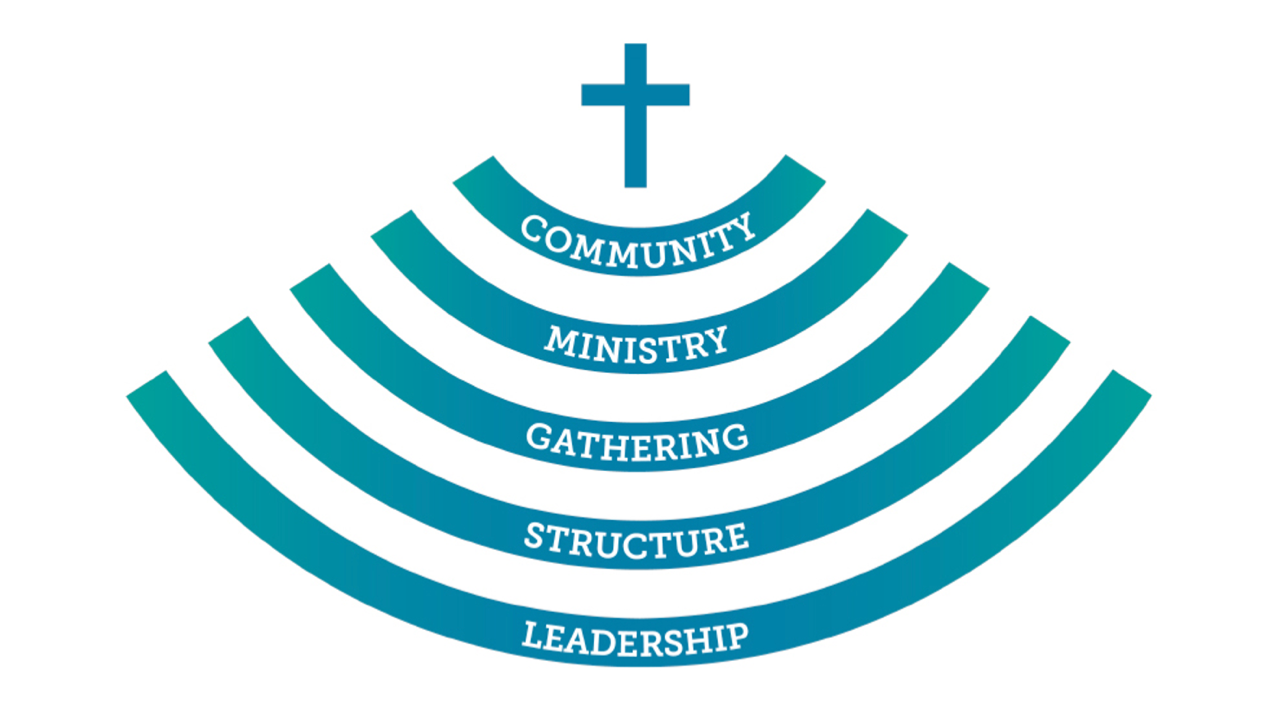
If you put a circle around all of these cradles, then you have our church. So, we have those who are involved in their neighbourhoods and those who aren’t. We have those involved with ministries and those who aren’t. We have those who turn up on Sundays to simply try and work out what faith and God are all about.
For us, cradles allow us to frame our church with community at the heart, where community takes the first bite. We can be church present in our neighbourhoods throughout the week, supported by ministries, and then Sunday is the icing on the cake.
So is this all about what the church can bring to the neighbourhood?
AJ: It is probably more about the church being part of the neighbourhood and rediscovering what it means to be local church. We want to be a part of our neighbourhood as community. It is about seeing holistic redemption in all of the relationships found in a place.
Yes, we can offer many levels of support as people and from our many ministries, but we try not to duplicate something that is already running in the neighbourhood. We want to back our people on the ground and the strengths that exist in our neighbourhoods, rather than replicate something with our church’s version. The church is just one ingredient in seeing local neighbourhoods come together to reach dreams and meet needs.
We are finding that the 360-degree life in our neighbourhoods means that it can be a natural thing to be true to ourselves in a faith sense, and share who we are and who we follow. At times, we can be a bit backward in coming forward about the gospel. There can be this feeling that others don’t want to know about God and here we find an opportunity to move beyond this sense of division between the ‘secular’ and the ‘spiritual.’
Closing thoughts
AJ: Some say that this is all for the sake of mission. But it’s not only missional. One of our leaders has been on the receiving end of community care recently, and it has been formational for him as a human. This sense of belonging in one place and living closer has also fostered his devotional life, deep friendships, and yes, his ability to make a difference in this world. This way of living is good for us; it’s good for me.
There is something about this that is more caught than taught, so if this is of interest, you are always welcome to come down for a couple of days or a couple of weeks, soak it up, and get to know some people for yourselves. Then go back to your community and ask God what it might mean for you. It won’t necessarily be the same as us, but it might have some similar underlying dynamics.
We don’t have all the answers. We still wrestle with questions that other churches do. But we are on a journey of exploring what we sense as God’s call to live more locally and do life together. We want to learn from and be in relationship with others who feel drawn to this journey too.
Story: Sarah Vaine with Alan Jamieson
Alan is Senior Pastor of South West Baptist Church.
Take outs:
- What struck you most about this article?
- What can you take from the first diagram?
- What do you think about this line: “There looks to be an opportunity to re-find ourselves in physical proximity to one another and in relationship to a place.”
- How is your church structured and what is your focus?
- How could your church and neighbourhood work together to foster the strengths where you are?
- If this article resonates with you, how could you connect with others who are drawn to the journey of living life more locally?
